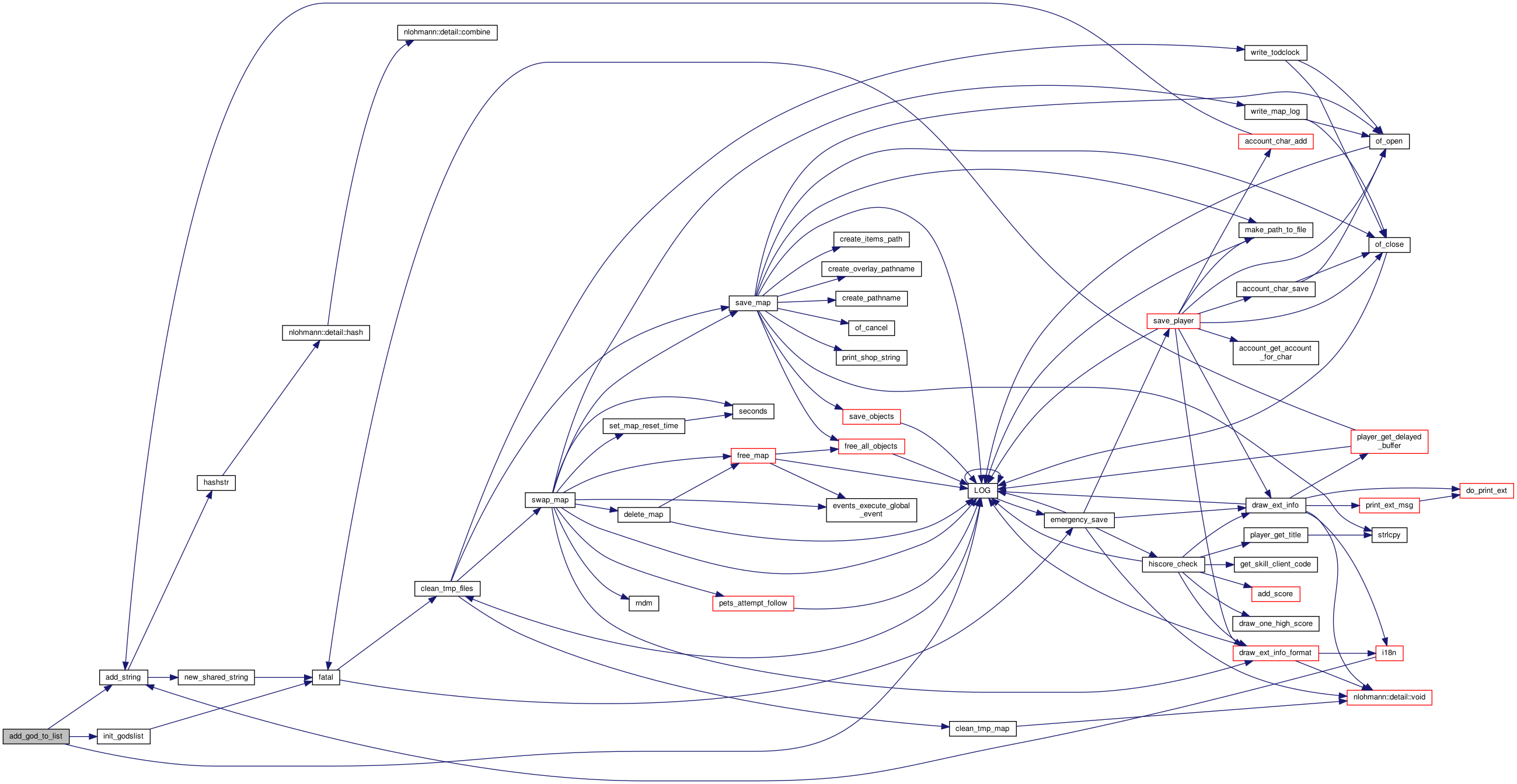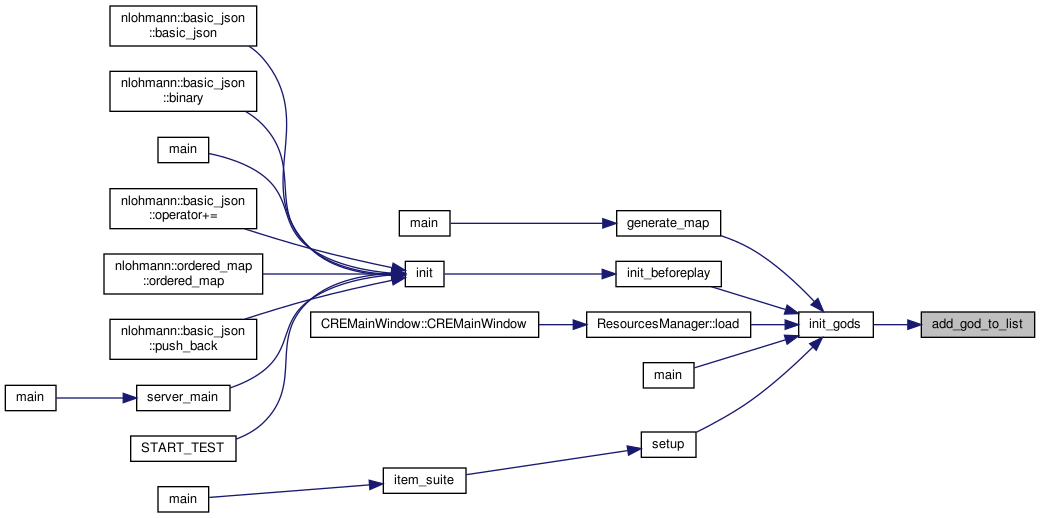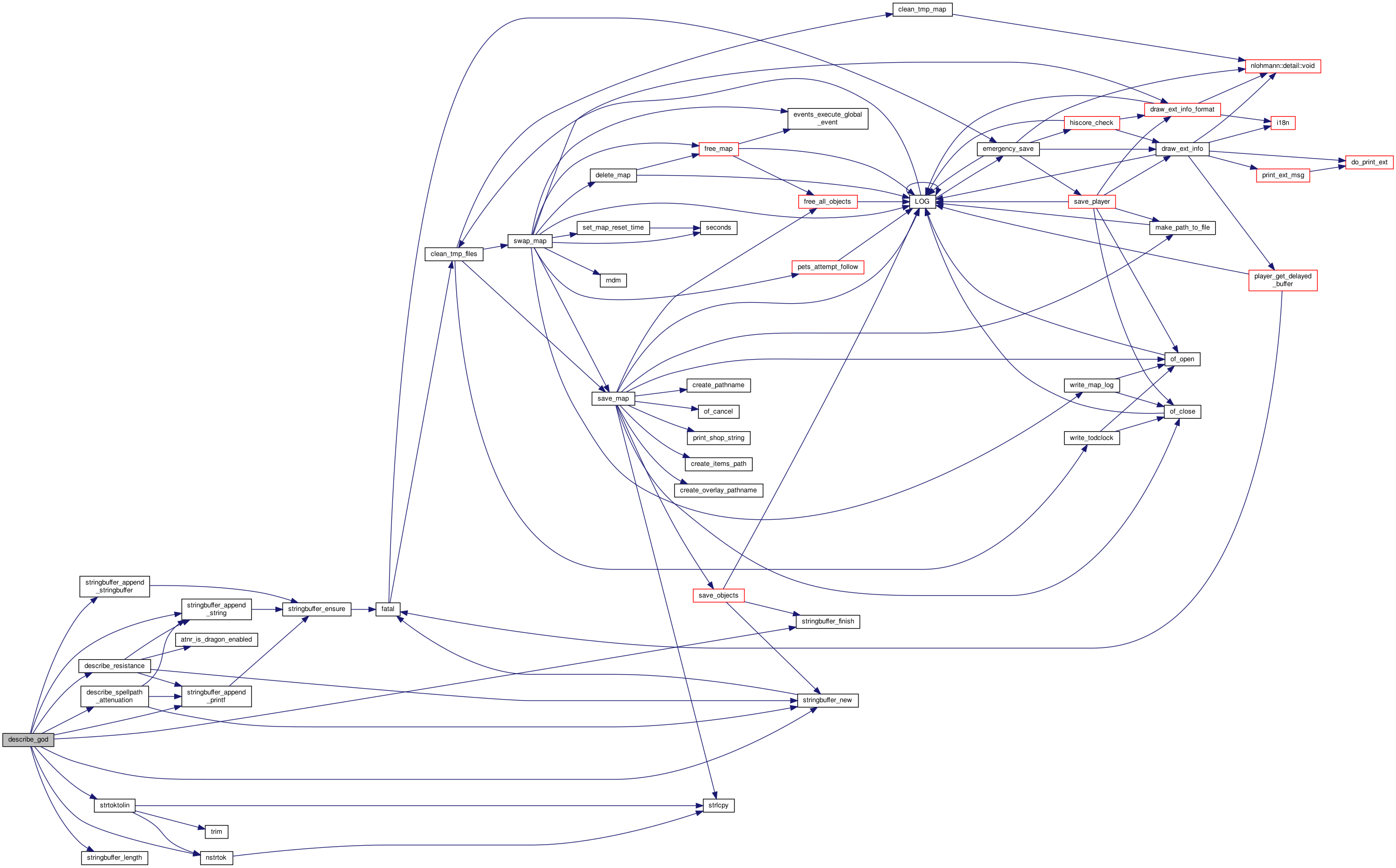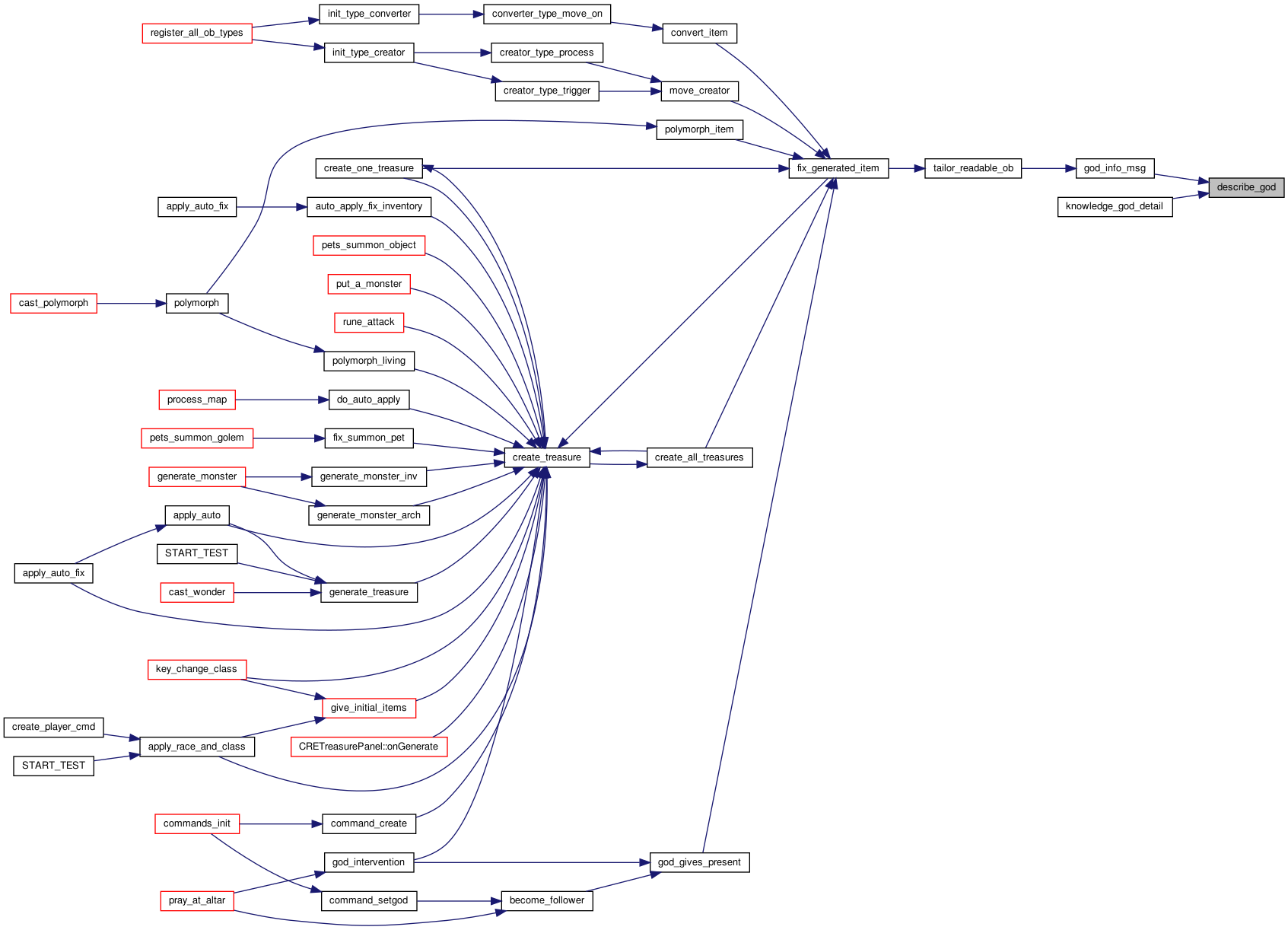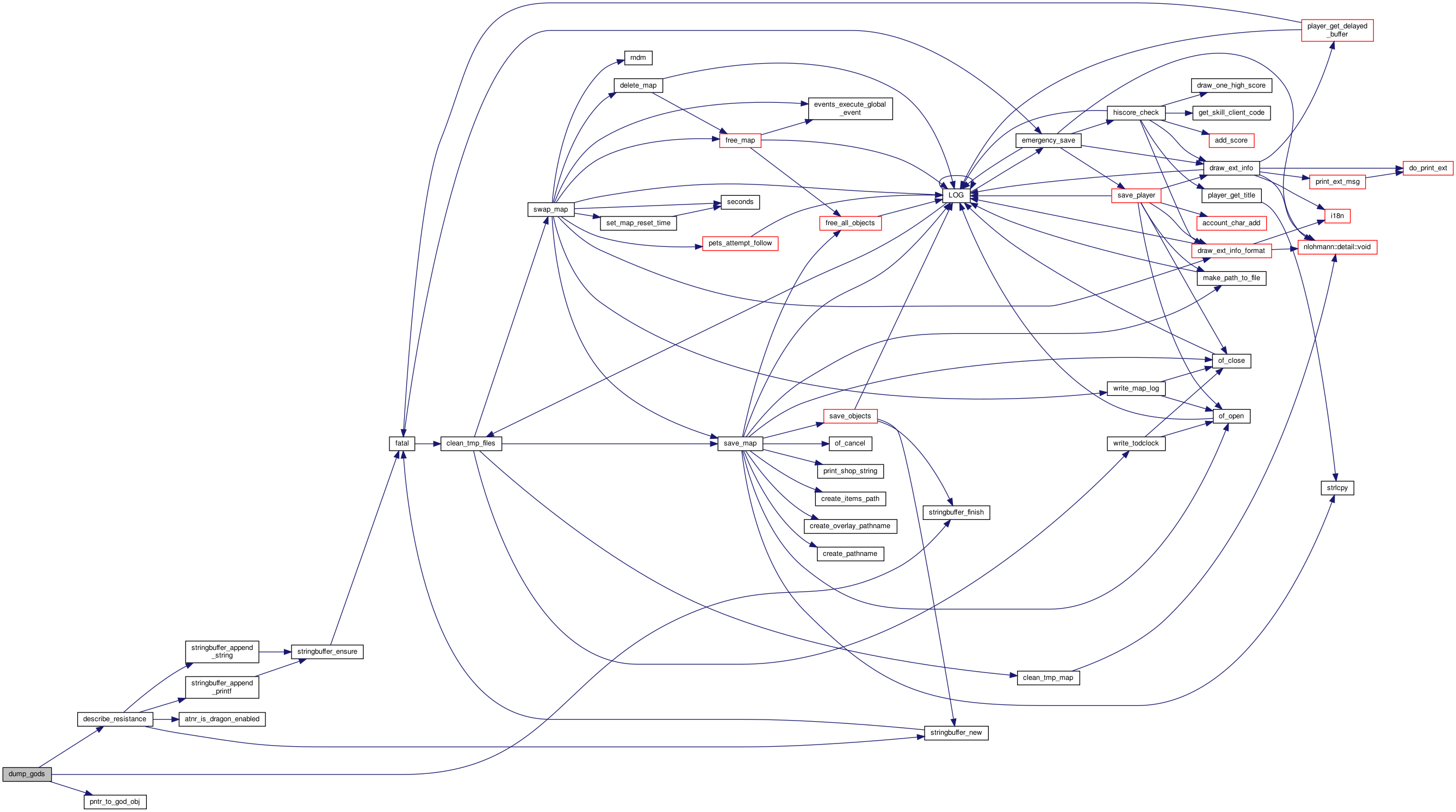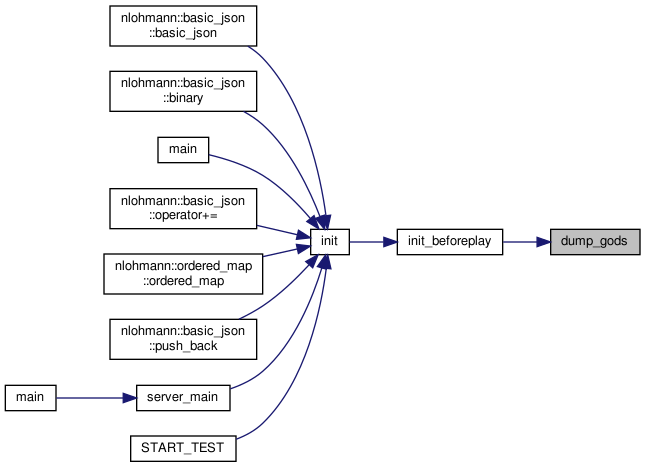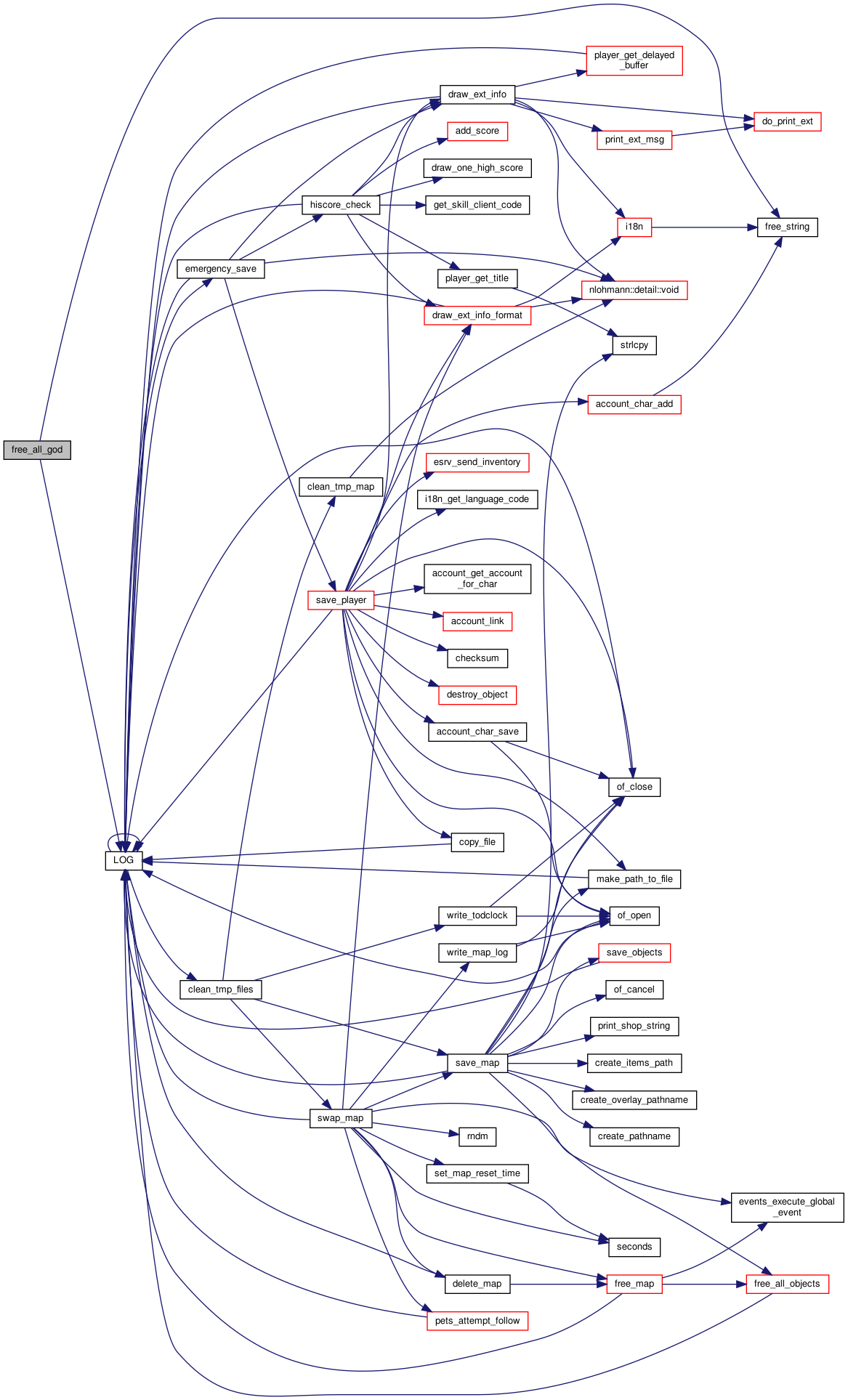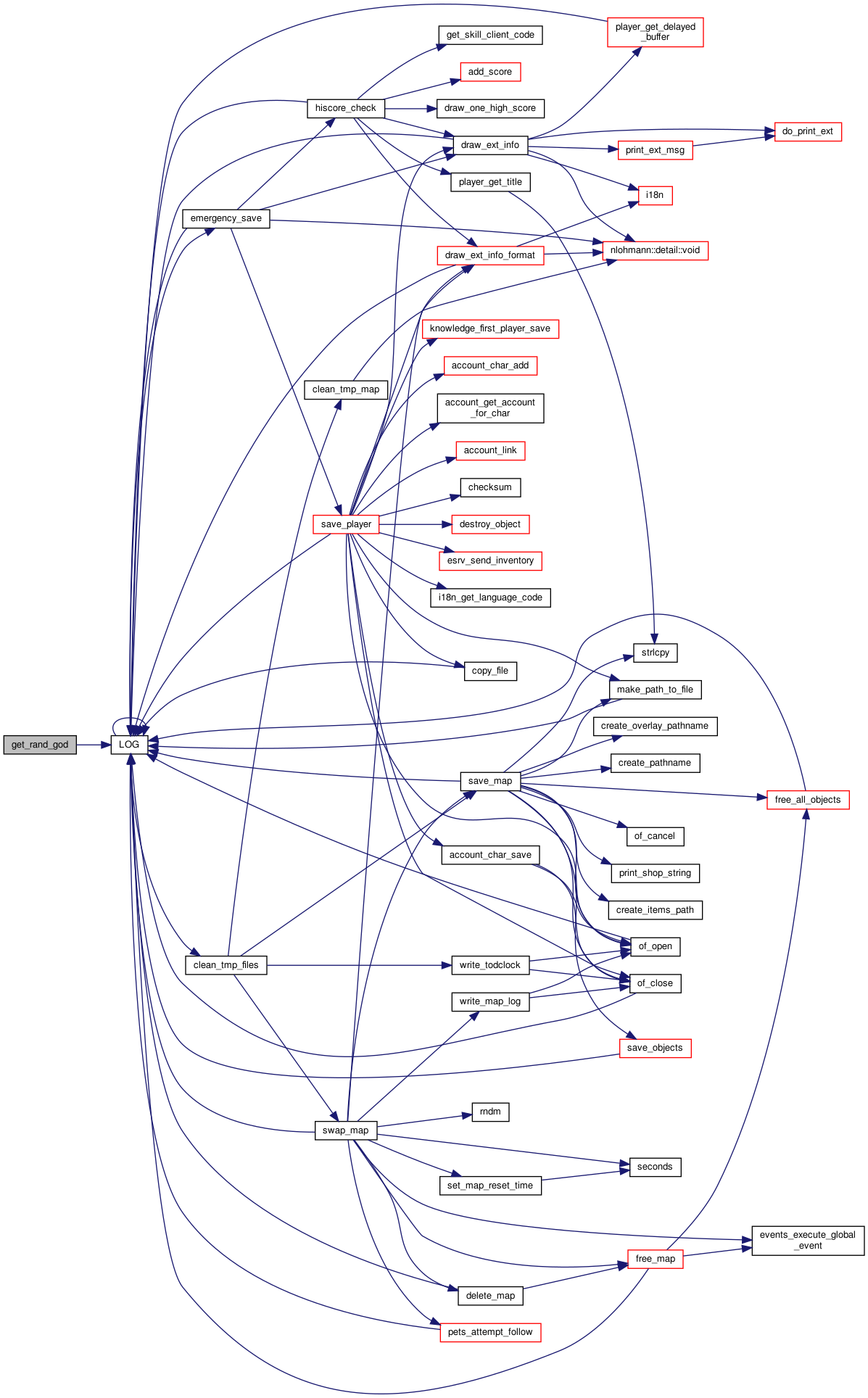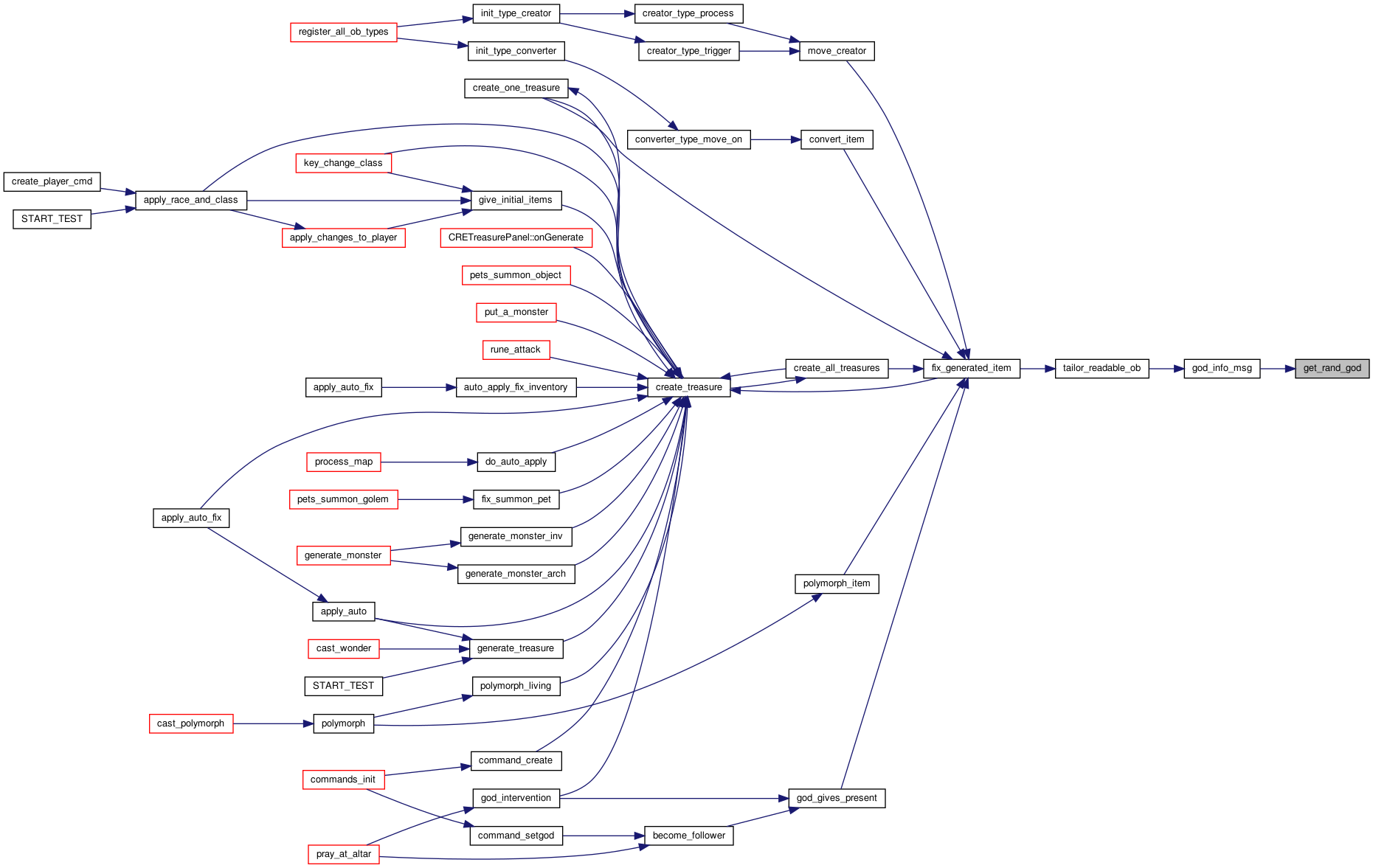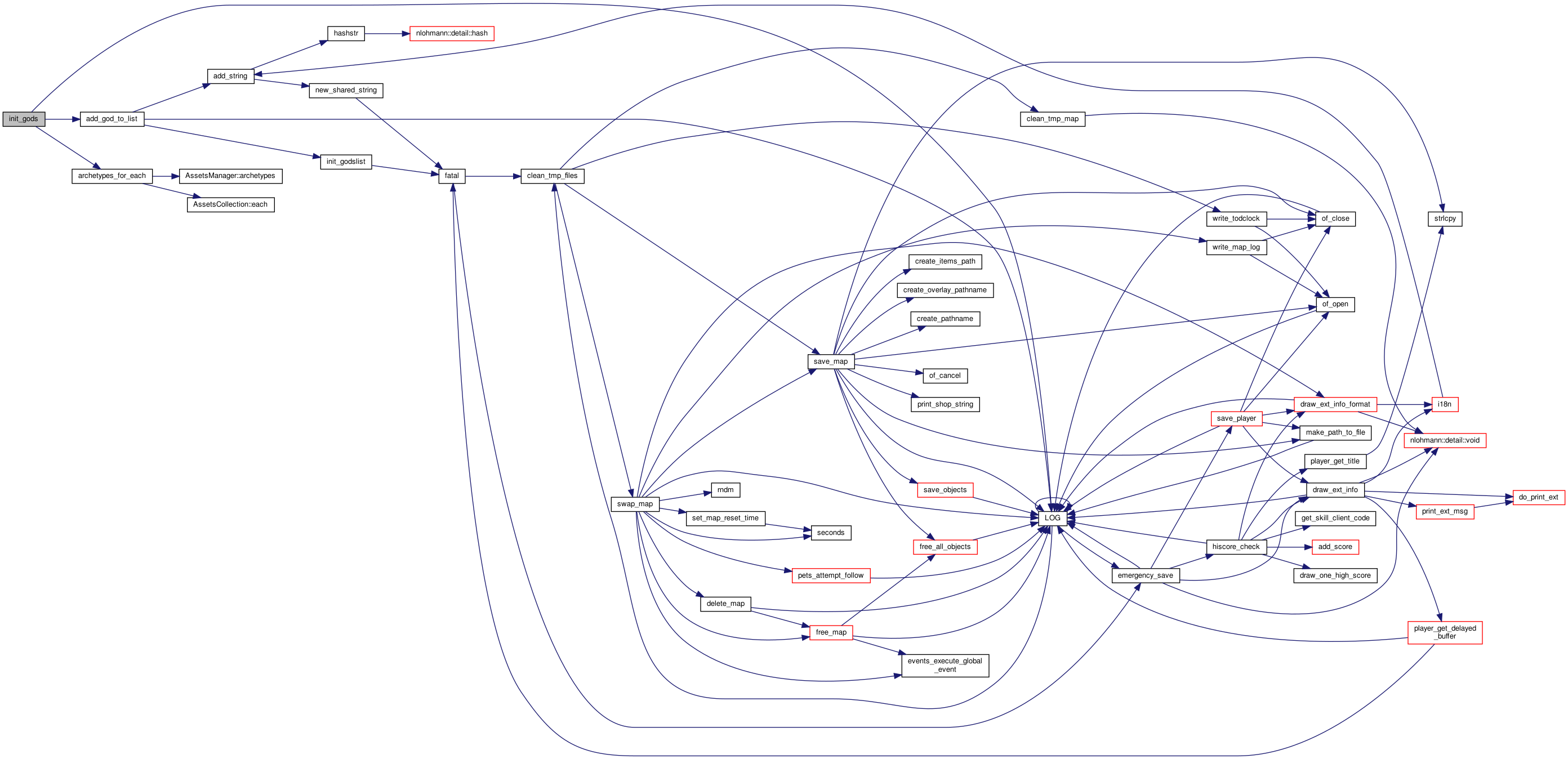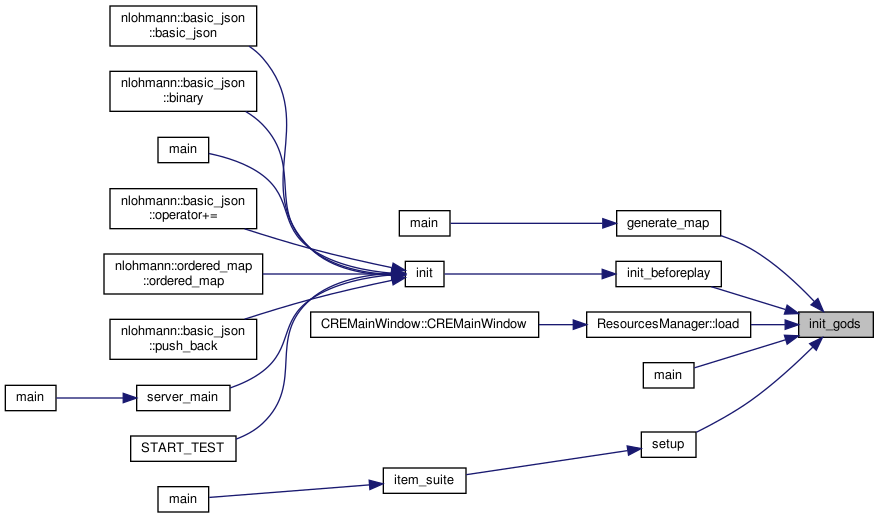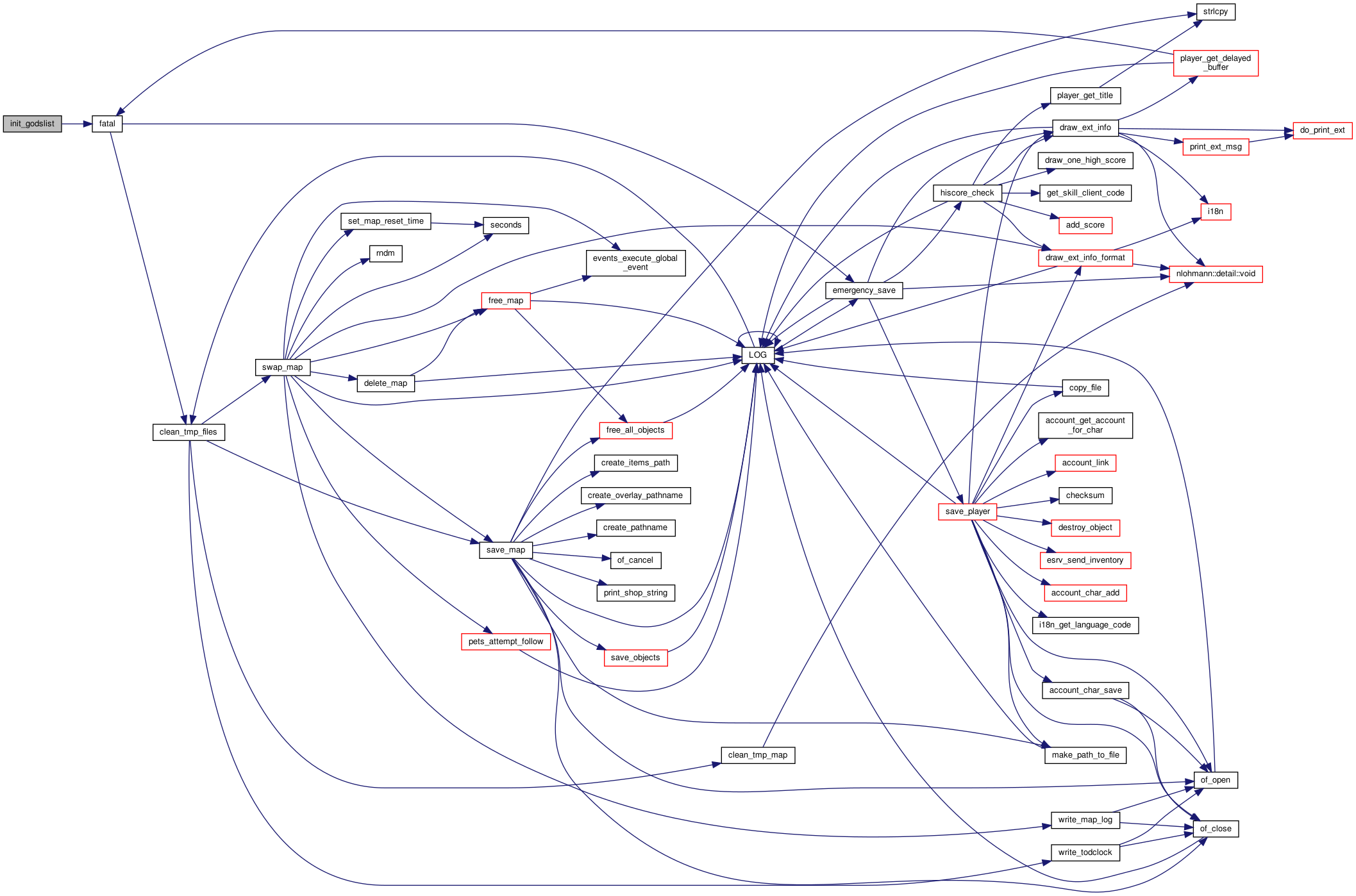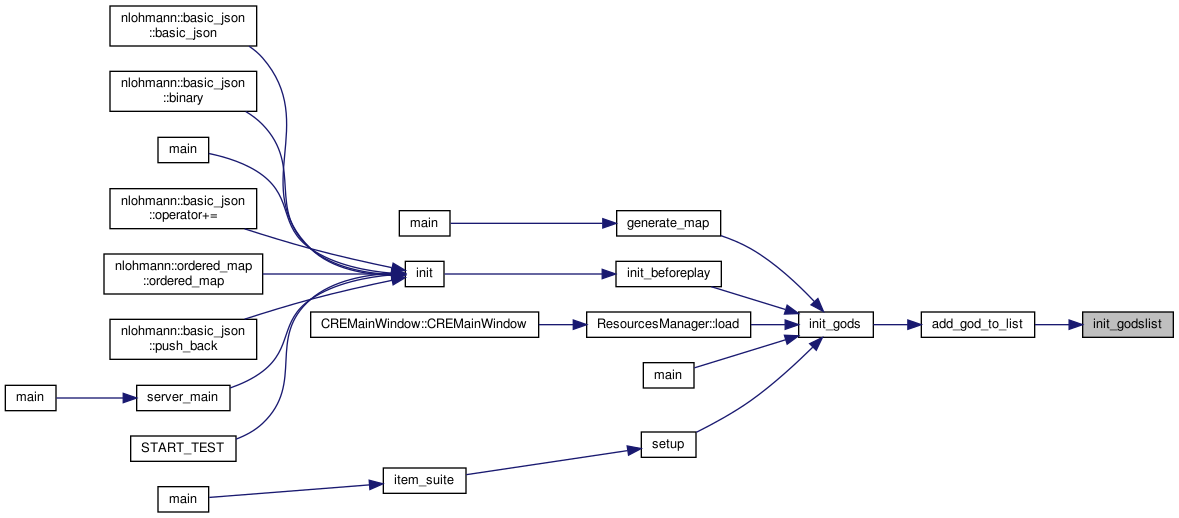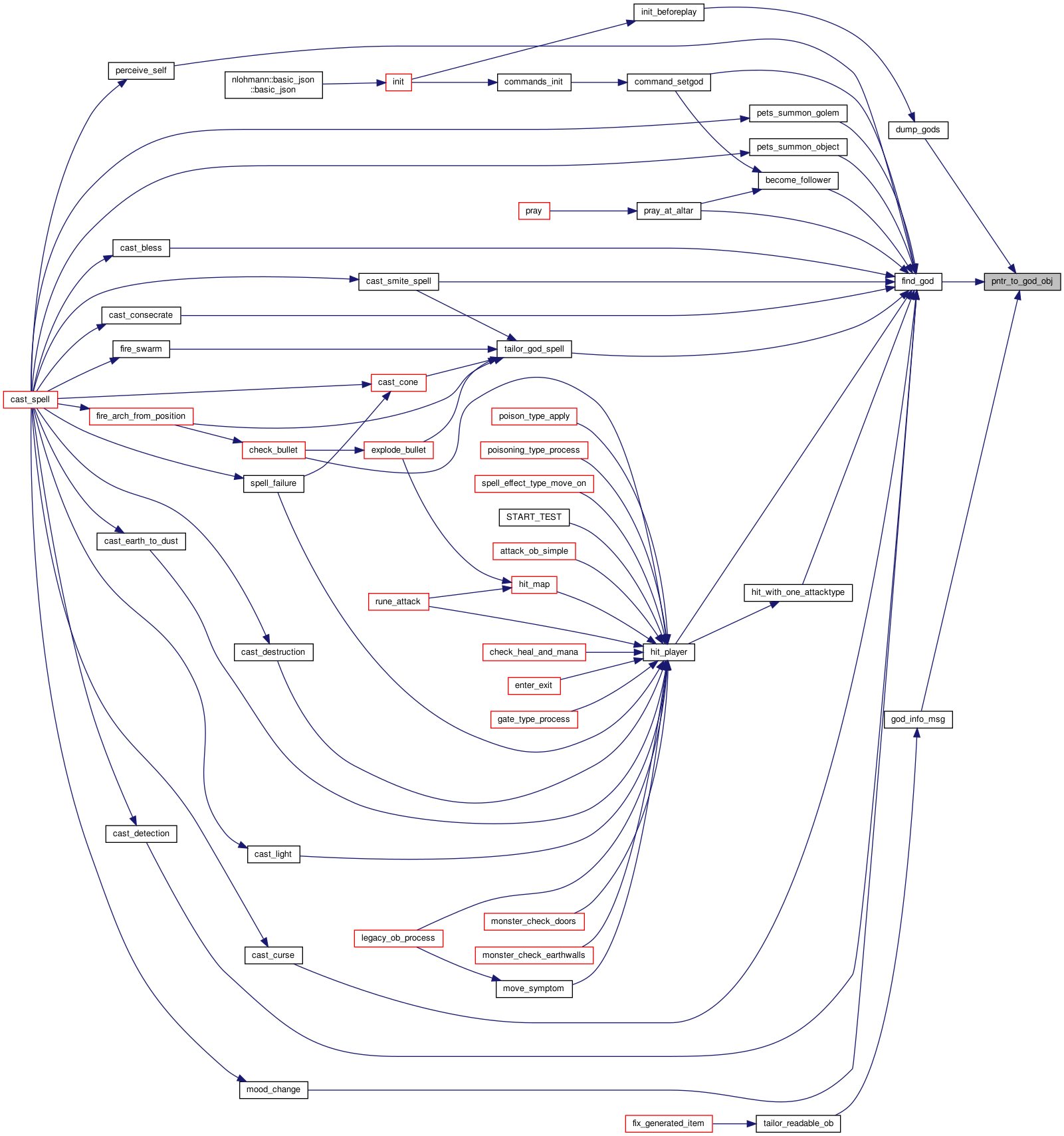#include "global.h"#include <assert.h>#include <stdlib.h>#include <string.h>#include "libproto.h"#include "living.h"#include "spells.h"#include "assets.h" Include dependency graph for holy.c:
Include dependency graph for holy.c:Go to the source code of this file.
Macros | |
| #define | DESCRIBE_ABILITY(retbuf, variable, name) |
| #define | DESCRIBE_PATH(retbuf, variable, name) |
Functions | |
| static void | add_god_to_list (archetype *god_arch) |
| int | describe_god (const object *god, int what, StringBuffer *buf, size_t maxlen) |
| void | dump_gods (void) |
| void | free_all_god (void) |
| godlink * | get_rand_god (void) |
| void | init_gods (void) |
| static godlink * | init_godslist (void) |
| const object * | pntr_to_god_obj (godlink *godlnk) |
Detailed Description
God-related common functions.
Definition in file holy.c.
Macro Definition Documentation
◆ DESCRIBE_ABILITY
| #define DESCRIBE_ABILITY | ( | retbuf, | |
| variable, | |||
| name | |||
| ) |
◆ DESCRIBE_PATH
| #define DESCRIBE_PATH | ( | retbuf, | |
| variable, | |||
| name | |||
| ) |
Function Documentation
◆ add_god_to_list()
|
static |
Adds specified god to linked list if god, gives it an id.
- Parameters
-
god_arch God to add. If NULL, will log an error.
Definition at line 55 of file holy.c.
References add_string(), glnk::arch, archt::clone, first_god, GOD, glnk::id, init_godslist(), llevDebug, llevError, LOG(), glnk::name, obj::name, glnk::next, and obj::type.
Referenced by init_gods().
 Here is the call graph for this function:
Here is the call graph for this function: Here is the caller graph for this function:
Here is the caller graph for this function:◆ describe_god()
| int describe_god | ( | const object * | god, |
| int | what, | ||
| StringBuffer * | buf, | ||
| size_t | maxlen | ||
| ) |
Describe a god. The reason we return a combination is to know what exactly was written for knowledge management.
- Parameters
-
god which god to describe. what information to describe, combination of GOD_xxx flags. buf where to describe, must not be NULL. maxlen maximum wanted length of the description, if 0 no maximum length.
- Returns
- information actually written, combination of GOD_xxx, based on maxlen.
Definition at line 136 of file holy.c.
References attacktype_desc, buf, describe_resistance(), describe_spellpath_attenuation(), GOD_BLESSED, GOD_ENEMY, GOD_HOLYWORD, GOD_IMMUNITIES, GOD_PATHS, GOD_RESISTANCES, GOD_SACRED, HUGE_BUF, MAX_BUF, obj::msg, give::name, obj::name, NROFATTACKS, nstrtok(), obj::path_attuned, obj::path_denied, obj::path_repelled, PATH_SUMMON, PATH_TURNING, obj::race, obj::resist, obj::slaying, stringbuffer_append_printf(), stringbuffer_append_string(), stringbuffer_append_stringbuffer(), stringbuffer_finish(), stringbuffer_length(), stringbuffer_new(), strtoktolin(), guildbuy::temp, and obj::title.
Referenced by god_info_msg(), and knowledge_god_detail().
 Here is the call graph for this function:
Here is the call graph for this function: Here is the caller graph for this function:
Here is the caller graph for this function:◆ dump_gods()
| void dump_gods | ( | void | ) |
Prints all gods to stderr.
- Todo:
- use LOG instead of fprintf().
Definition at line 385 of file holy.c.
References liv::ac, obj::attacktype, archt::clone, liv::Con, liv::dam, DESCRIBE_ABILITY, DESCRIBE_PATH, describe_resistance(), liv::Dex, first_god, FLAG_BLIND, FLAG_MAKE_INVIS, FLAG_REFL_MISSILE, FLAG_REFL_SPELL, FLAG_SEE_IN_DARK, FLAG_STEALTH, FLAG_UNDEAD, FLAG_USE_ARMOUR, FLAG_USE_WEAPON, FLAG_XRAYS, liv::hp, HUGE_BUF, liv::Int, obj::last_eat, obj::last_grace, obj::last_heal, obj::last_sp, obj::level, liv::luck, obj::msg, obj::name, archt::name, glnk::next, obj::other_arch, obj::path_attuned, obj::path_denied, obj::path_repelled, pntr_to_god_obj(), liv::Pow, QUERY_FLAG, obj::race, obj::slaying, obj::speed, obj::stats, liv::Str, stringbuffer_finish(), obj::title, liv::wc, and liv::Wis.
Referenced by init_beforeplay().
 Here is the call graph for this function:
Here is the call graph for this function: Here is the caller graph for this function:
Here is the caller graph for this function:◆ free_all_god()
| void free_all_god | ( | void | ) |
Frees all god information.
Definition at line 336 of file holy.c.
References first_god, free_string(), llevDebug, LOG(), glnk::name, and glnk::next.
Referenced by cleanup().
 Here is the call graph for this function:
Here is the call graph for this function: Here is the caller graph for this function:
Here is the caller graph for this function:◆ get_rand_god()
| godlink* get_rand_god | ( | void | ) |
Returns a random god.
- Returns
- a random god, or NULL if no god was found.
Definition at line 100 of file holy.c.
References first_god, glnk::id, llevError, LOG(), glnk::next, and RANDOM.
Referenced by god_info_msg().
 Here is the call graph for this function:
Here is the call graph for this function: Here is the caller graph for this function:
Here is the caller graph for this function:◆ init_gods()
| void init_gods | ( | void | ) |
This takes a look at all of the archetypes to find the objects which correspond to the GODS (type GOD)
Definition at line 86 of file holy.c.
References add_god_to_list(), archetypes_for_each(), llevDebug, and LOG().
Referenced by generate_map(), init_beforeplay(), ResourcesManager::load(), main(), and setup().
 Here is the call graph for this function:
Here is the call graph for this function: Here is the caller graph for this function:
Here is the caller graph for this function:◆ init_godslist()
|
static |
Initializes a god structure.
- Note
- Will never return NULL.
Definition at line 37 of file holy.c.
References glnk::arch, fatal(), glnk::id, glnk::name, glnk::next, and OUT_OF_MEMORY.
Referenced by add_god_to_list().
 Here is the call graph for this function:
Here is the call graph for this function: Here is the caller graph for this function:
Here is the caller graph for this function:◆ pntr_to_god_obj()
Returns a pointer to the object We need to be VERY careful about using this, as we are returning a pointer to the CLONE object. -b.t.
- Parameters
-
godlnk god to get object.
Definition at line 122 of file holy.c.
References glnk::arch, and archt::clone.
Referenced by dump_gods(), find_god(), and god_info_msg().
 Here is the caller graph for this function:
Here is the caller graph for this function:
